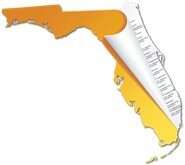The Florida Advantage: Online Notarization for Foreign Nationals and Expats Worldwide
Why Traditional Notary Verification Methods Fall Short for Global Clients
Inconsistent standards severely limit who can access online notary services globally.
Notarization is essential for verifying documents used in real estate, legal proceedings, and business transactions worldwide. While remote online notarization (RON) brought much-needed convenience, it was built on a foundation that couldn’t handle the global market.
The challenge wasn’t the technology; it was the reliance on antiquated identity standards that created barriers for U.S. expats and especially foreign nationals. This system severely limited the reach and accessibility of RON, preventing millions of people outside the U.S. from benefiting from its convenience and security.
Traditional RON platforms cannot serve the global market efficiently because they are designed for U.S. domestic use, not for the complexity of global identity verification.
Three Key Benefits: Why International Online Notarization is Superior to Traditional Methods
Eliminate travel, scheduling hassles, and the need for U.S. consulate visits.
Remote online notarization (RON) has solved the logistical nightmares of getting documents notarized while abroad. For both U.S. citizens and foreign nationals, the advantages over in-person meetings or appointments at embassies are immense.
- 1. Unmatched Flexibility: You can connect with a licensed Florida online notary from any time zone, using just a camera-equipped device and a stable internet connection. This eliminates travel costs, parking, and long wait times.
- 2. Enhanced Security: Digital notarization is far more secure than traditional methods. Every session includes biometric identity verification, tamper-proof electronic seals, and a full audit trail with audio-video recording, providing verifiable proof of the transaction.
- 3. Full Authentication Workflow: As documents notarized internationally often require an apostille for acceptance overseas, our Florida-based team provides an end-to-end service. We coordinate the RON, the apostille process, and global delivery—all without requiring you to mail physical documents.
Fast Track to Acceptance: The combination of secure RON and integrated apostille service is the fastest, most reliable method for authenticating documents for international use.
Click here to ORDER your remote online notarization service today.
The Critical Flaw: Why Knowledge-Based Authentication (KBA) Excluded International Signers
Most national RON platforms still rely on outdated KBA, turning away qualified international signers.
For years, remote online notarization (RON) relied on Knowledge-Based Authentication (KBA) to verify a signer’s identity. KBA required the signer to pass a timed, multiple-choice quiz based on their U.S. credit history.
Remote online notary providers using KBA necessitated a 3-5 year U.S. credit history for their clients. To generate a KBA test, the signer’s credit history was examined for sufficient data.

KBA instantly disqualified millions of global citizens and imposed unnecessary credential limits.
However, this approach excluded non-U.S. citizens without social security numbers, effectively disqualifying them from utilizing online notarization. Even for those with social security numbers, such as U.S. legal residents working in the country, their credit histories were often insufficient for passing KBA.
Additionally, credential analysis presented further limitations. Early online notary providers restricted the types of identification credentials accepted, initially only allowing state-issued driver’s licenses. Even after U.S. passports were added, this constraint still prevented non-U.S. citizens residing outside the country from benefiting from the convenience and security of online notarization.
Modernizing these processes to be more inclusive and accessible is essential for the future of global online notarization.
Florida's Solution: Biometric Technology and Acceptance of Foreign Passports
Florida is the clear, compliant choice for reliable international acceptance.
The landscape of online notarization in the United States is marked by a patchwork of varying regulations. Some states permit Remote Online Notarization (RON) permanently, while others do not, or they still rely on temporary, confusing provisions.
These inconsistencies often lead to archaic and inefficient procedures for international notarizations. One particularly antiquated example requires signers to ink-sign paper documents under the online notary’s watchful eye via camera, and then mail the physical documents to the notary afterwards. This cumbersome process defeats the entire purpose of online notarization.
For clients abroad, this legal maze creates massive uncertainty. The solution is simple: trust a notary commissioned in a state with clear, comprehensive, and globally-focused RON laws.
The Florida Difference: Unlike many states, Florida’s RON laws are permanent, clearly defined, and specifically designed to accommodate international identification and remote signers. This ensures your notarization is accepted nationwide and globally.
Streamlined Remote Notarization for U.S. Citizens and Military Personnel Overseas
Your solution for real estate, legal, and personal documents while living or traveling abroad.
For U.S. citizens—including service members, diplomats, and business professionals—accessing a notary abroad has traditionally been cumbersome, often requiring a costly trip to a U.S. Embassy or Consulate. Online notarization eliminates this need entirely, offering a secure, efficient, and legally valid solution.
While U.S. citizens generally use U.S. Passports or State IDs for verification, our robust system ensures the process is fast and reliable from any country. Florida Document Specialists is a trusted partner for U.S. citizens managing property, maintaining residency, or handling legal matters from any country.
Need an Apostille? Documents signed by U.S. citizens abroad often require an apostille to be legally accepted internationally.
Our Florida-based team can seamlessly complete both the online notarization and the final apostille process, ensuring your documents meet every international requirement without you ever needing to mail them.
Global Notary Services for Non-U.S. Citizens: Seamless Document Notarization
We serve qualified non-U.S. citizens worldwide without requiring a U.S. Social Security number or credit history.
This is where Florida’s progressive notary laws truly shine. Our certified online notaries are equipped to serve qualified non-U.S. citizens across the globe, provided they have a high-speed internet connection, a device with a webcam, and their valid foreign passport.
The process is simple: Your identity is verified instantly using biometric analysis of your passport, bypassing the old, exclusionary systems entirely. We can notarize a wide range of documents, provided they pertain to personal or business matters within the United States.
For clients who also need their notarized documents certified for use in another country, we provide complete apostille and authentication support through our Tallahassee and Washington, D.C. offices, ensuring your documents are legally ready for their final destination.
Seamless Service: Our goal is to offer a smooth and efficient notarization experience for clients across the globe, making complexity disappear.
Click here to ORDER your remote online notarization service now.
Ready to Start? Secure Your International Online Notarization Today
No lines. No wait. Just secure, globally compliant online notarization from Florida Document Specialists.
You’ve learned about the Florida Advantage: the ability to service U.S. expats and foreign nationals worldwide with passport-based verification.
We are a recognized leader in this field, trusted for our professionalism, security, and expertise in handling documents that require international authentication (apostille) and specialized witnessing.
Don’t risk delays or rejection with platforms built only for domestic use. Choose the secure, verified, and permanent RON solution designed for the global market.
Need Assistance? We’re Here to Help.
You can reach our team immediately via phone, email, or the live chat feature available site-wide. We also offer direct support via WhatsApp for instant communication.
Final Requirements: What You Need for International Online Notarization
A simple checklist to confirm you meet the criteria for a compliant session.
To ensure a fast, compliant, and successful remote online notarization from any location worldwide, you need four essential things:
- A Stable Connection: Access to high-speed internet and a device (desktop, laptop, or smartphone) with a functional camera and microphone.
- Valid Photo ID: For non-U.S. citizens located outside the U.S., a valid passport from any country is required.
- Complete Document: A PDF of the document to be notarized. Documents can be in any language, but the notarial wording must be in English.
- Language Support: Signers must be fluent in English or Spanish, or use our certified interpreter service for other languages (as required by Florida law).
Review Full Legal Requirements:
For a complete, legally authoritative list of all accepted IDs, document rules, and specific system requirements, please consult the official Requirements section on our main Florida Online Notary page.
Eliminate confusion and ensure compliance by choosing Florida’s globally inclusive notarization platform.
The international notarization field is complex, but the solution doesn’t have to be. By leveraging Florida’s modern biometric ID verification and expanded credential acceptance, Florida Document Specialists has removed the barriers that traditionally prevented U.S. expats and foreign nationals from accessing secure, compliant online notary services.
We are your dedicated partners in navigating both the RON process and the subsequent apostille requirement for documents destined overseas. Choose our team for verified, seamless, and globally recognized service.
Ready to Convert Knowledge into Action?
You have the necessary information. Click the button below to be taken to our Remote Online Notary service page and start your order today.

